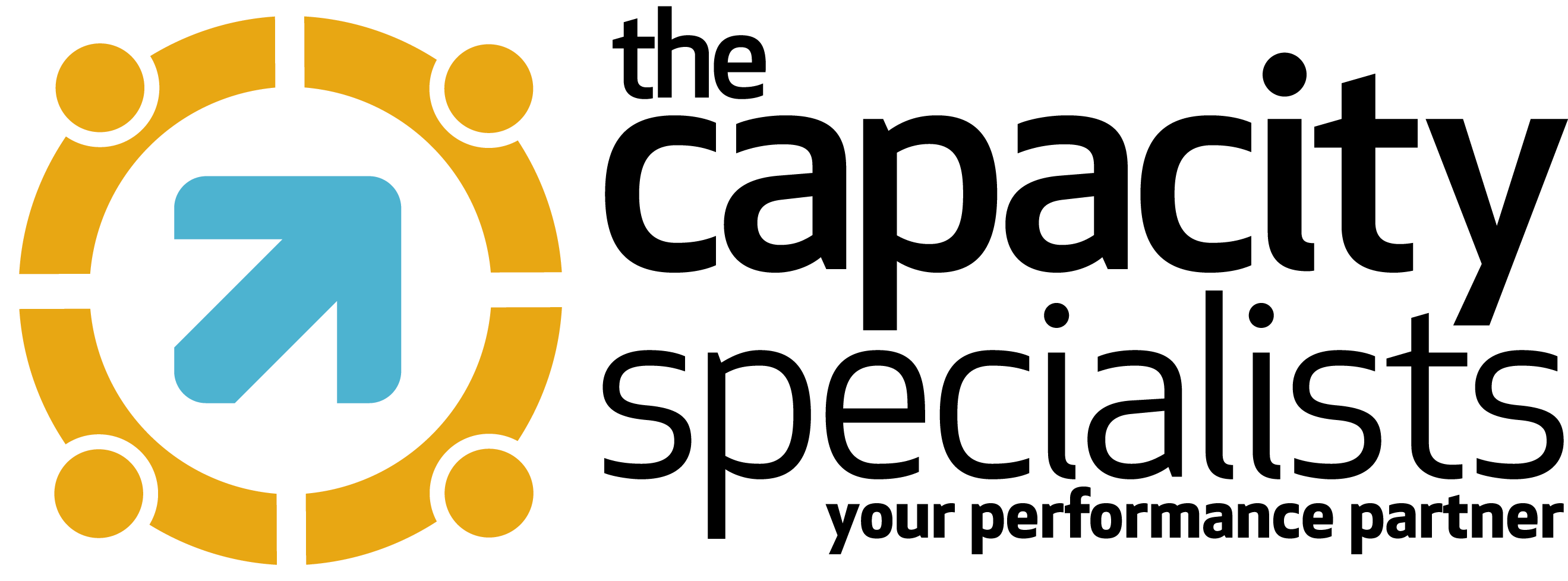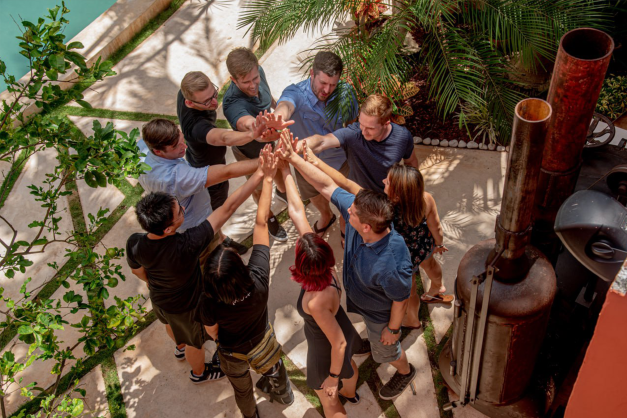Cultivating Sustained Learning: Nurturing Growth and Brilliance in Modern Organisations
Early in my career, I worked in small companies of less than 20 people. I worked at a magazine publisher, a wellness consultancy, a public relations firm, and a knowledge management consultancy. They were all interesting jobs because whenever I didn’t understand something, I could easily find people to help me learn.
In most cases, the founder or owner of the companies would guide me directly. It allowed me to learn exactly how I was expected to work. In my 11th year of employment, I joined Accenture, a huge global consultancy of 500,000 people.
I was initially worried that I would no longer get the kind of guidance that I was used to. However, by the first month, I discovered that the organisation practices a concept called Cascaded Learning. This is where every executive is empowered to teach their knowledge and experience to their team members.
They do this during normal work hours as part of their role as People Developers and even do it as faculty at the regional learning centres in the USA, Spain, the UK, Malaysia, and India. They could take up to 3 weeks away from their projects to teach courses at these learning centres. Some even apply to be extended faculty to do it long term.
This has the huge benefit of conveying the best practices of the organisation from seniors to newcomers without needing to learn them on the job. The principle behind this is the belief that the best people to train their people are their internal employees, not some external trainer who doesn’t understand how the organisation works.
Every employee has unique talents and areas of development. Accenture has recognised this and implemented personalised learning and development plans for its workforce.
Through workshops, webinars, mentoring, and tailored training programs, Accenture ensures that each employee gets the support they need to thrive and reach their full potential. This approach not only enhances individual skills but also strengthens the collective expertise of the organisation.
By nurturing talent with personalised development, Accenture encourages a sense of ownership and dedication among employees, leading to a more engaged and motivated workforce.
As a result, this has created a very robust learning culture that is built to the framework of their core values, learning & development, performance management, and rewards & remunerations. Because of this experience, I have become very interested in how other organisations spark, build, and sustain their learning cultures.
If we look at the success stories, we find a pattern that is people-oriented and people-driven. The key to success lies in approaching the learning culture as an organic growth that can be guided but not controlled, like tending to a garden of knowledge and nurturing it with care and dedication.
In this article, we embark on a thrilling expedition through the realms of Google, Microsoft, Air Asia, Petronas and, of course Accenture — giants that have mastered the art of learning and growth. So, let the exploration begin!
Examples Of Organisations That Have Encouraged a Learning Culture
Imagine a workplace where learning is not just an obligatory checkbox but a passionate pursuit that permeates the organisation. Look no further than Google, the search engine magnate that thrives on the very essence of innovation. Google’s renowned “20% time” policy has become an embodiment of its learning culture.
What’s the secret behind this policy? Well, it’s simple yet powerful. Employees are encouraged to dedicate one-fifth of their working hours to working on projects of their choice, irrespective of their primary roles. It’s like setting aside a little plot of time for each employee to cultivate their passions and nurture their interests.
As a result, brilliant projects like Gmail and Google News have emerged from this very initiative. By giving employees the freedom to explore their ideas and feed their curiosity, Google has effectively created an environment where continuous learning is not only encouraged but celebrated.
Not to be outdone, Microsoft also boasts an impressive approach to fostering innovation and learning through their “Hackathon” events. Imagine a grand gathering of developers from various corners of the company, coming together to explore new ideas and experiment with daring projects.
During these intense hackathons, Microsoft developers have the chance to collaborate, challenge themselves, and build prototypes of their innovative concepts. This not only sparks their passion but also results in real-world applications and products that have shaped the tech landscape.
How Modern Organisations Can Benefit From Knowledge-Sharing Platforms
Imagine a lush orchard where wisdom and knowledge are shared freely among peers. At Air Asia, the low-cost airline that has taken the aviation industry by storm, this is precisely the case. Air Asia’s “Air Asia Academy” serves as the watering hole of knowledge for its employees.
The academy serves as a knowledge-sharing platform, encouraging employees to share their expertise, experiences, and best practices with their colleagues. This cross-pollination of ideas empowers the entire organisation to flourish and stay ahead in the highly competitive airline industry.
With the academy fostering a culture of open learning, the workforce becomes equipped with a broader understanding of the industry, leading to better decision-making and continuous improvement.
Use Failure As A Tool in Your Organisation’s Learning Journey
No garden is without its weeds, and similarly, no learning journey is without its challenges. However, the way an organisation deals with failure can determine its potential for growth. Petronas, the Malaysian multinational energy corporation, understands this fundamental truth.
Petronas embraces failure as a natural part of the learning process. They see it not as a setback but as a stepping stone towards improvement and innovation. By nurturing a culture that encourages risk-taking and learning from mistakes, Petronas has positioned itself as a company that is always evolving and adapting to the changing landscape of the energy sector.
Likewise, Google’s “Moonshot Factory,” also known as X, embodies a similar mindset. They encourage their teams to take on ambitious and risky projects that might initially seem impossible or even downright crazy. The aim is not merely success or failure, but rather to explore uncharted territories that can yield groundbreaking results.
Even if a moonshot project doesn’t achieve its intended outcome, the learnings gathered along the way serve as valuable insights for future endeavors.
Nurturing Growth Mindsets in Your Leadership Team
In any garden, the roots play a crucial role in the health and growth of the plants. Similarly, the actions of leaders in an organisation significantly impact the learning culture within it.
Microsoft’s CEO, Satya Nadella, serves as an exemplary figure in nurturing a growth mindset within the company. He has actively fostered a culture where employees are encouraged to embrace challenges, learn from failures, and continuously improve.
Under Nadella’s leadership, Microsoft’s culture has evolved from a focus on knowing it all to an emphasis on learning and adapting to the evolving tech landscape. This mindset shift has contributed to the company’s renewed success in recent years.
At Google, the former chairman of Alphabet, Eric Schmidt, has championed the cultivation of a culture of inquiry. Leaders are encouraged to ask questions, seek knowledge, and stay curious. By leading by example, Schmidt has created an environment where learning and inquisitiveness are encouraged at all levels of the organisation.
Watering the Seeds of Innovation In Continued Learning
Innovation is the sun that fuels the growth of organisations. Both Google and Microsoft have demonstrated their commitment to fostering innovation through different yet equally effective approaches.
Google’s “Innovation Time Off” policy grants employees the freedom to devote a portion of their working hours to explore innovative ideas outside their regular projects. This time serves as fertile ground for employees to nurture their creativity and come up with novel solutions and products.
On the other hand, Microsoft’s Surface series is a living testament to their dedication to innovation. The Surface devices, including the Surface Pro and Surface Book, have redefined the 2-in-1 device market and showcased Microsoft’s ability to think outside the box.
Harvesting the Fruits of Learning In An Organisation
Sustained learning isn’t just about personal growth; it’s about reaping tangible benefits as well. Air Asia’s emphasis on continuous training has resulted in a highly efficient workforce that caters to customer needs with a smile.
By investing in training and development, Air Asia has equipped its employees with the knowledge and skills necessary to excel in their roles. As a result, the airline has gained a reputation for providing excellent service, which has undoubtedly contributed to its remarkable success in the fiercely competitive airline industry.
Conclusion
If ever we were in doubt as to what is important here is that learning is the lifeblood of the people’s development, just as cashflow is for the organisation’s financial development. It is the key to any company’s growth and success.
Now you can take inspiration from Google’s innovative “20% time,” Microsoft’s daring “Hackathons,” Accenture’s personalised development, Air Asia’s knowledge-sharing culture, and Petronas’ embrace of failure.
When you’re ready to build a learning culture that is robust and sustainable, reach out to us by sending a message here, sending an email to results@thecapacityspecialists.com, or calling 087 484 808 or 061 722 233, and let’s see how we can help you.
Mohd Nadzrin Wahab is a Partner at The Capacity Specialists and a Learning & Performance Specialist from Malaysia, with more than 20 years of experience. Visit here for a full profile.
Related Posts
Leave a Reply Cancel reply
Categories
- Uncategorized (12)




